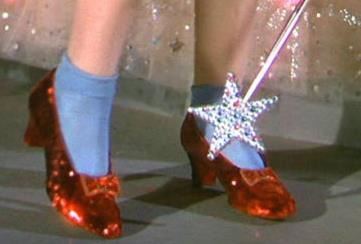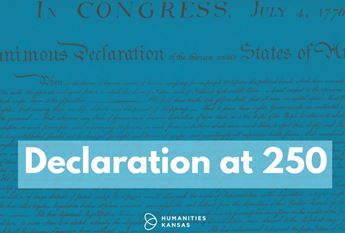

Home is a Complicated Place
April 14, 2020
We all remember Dorothy clicking her ruby slippers together and wishing her way homeward. But these days we know that home is a complicated place. As many of us spend more time at home than we have in a long while, we are considering what makes a home a home, how do we act differently at home than we do in other spaces, and how do we help others to feel at home when we welcome them into our domiciles, our communities, and our country.
Read and Discuss: No Place Like Home
In her 2018 book, No Place Like Home: Lessons in LGBT Kansas, C.J. Janovy, editor and arts reporter for Kansas City Public Radio (KCUR), tells the story of why members of the Kansas LGBTQ community have decided to stay in place and advocate for LGBTQ civil rights in their home state.
Engage your family in a discussion about home by reading an excerpt from Janovy’s book.
Read Excerpt from No Place Like Home
Then, answer the following questions:
- Why does Kahl move to Haven, Kansas? What makes Haven feel more like a home to Kahl than Kahl’s long-time home of Malvern, Iowa?
- The meeting at the Dodge House Restaurant in Dodge City is a turning point for Kahl and a number of the other meeting attendees? Why?
- Lindy Duree does not identify as LGBTQ, but she seems to feel “at home” with the group in Dodge City. What is the difference between feeling “at home” and identification? Can we identify with those we don’t feel at home with or vice versa?
Watch: No Place Like Home
Recently, Do Good Productions, Inc., of Overland Park received a grant from Humanities Kansas to make No Place Like Home into a documentary film, directed by Kansas filmmaker and Academy Award winner, Kevin Willmott. Take a moment to watch the trailer which features just one of the Kansas stories this film will cover.
Watch the No Place Like Home Trailer
Follow-up Questions:
Once you’ve watched the trailer, think about times and places in which you have been pressured to keep some aspect of your identity hidden. How did you respond? If you spoke out, why? If not, why not? And how did this experience change your ability to feel “at home” in that time and place?
We like to hear what you’re thinking. Share your stories with us @humanitieskansas (Facebook and Instagram) and @humanitiesks (Twitter) #storychasershk #humanitiesathome #movementofideas.



